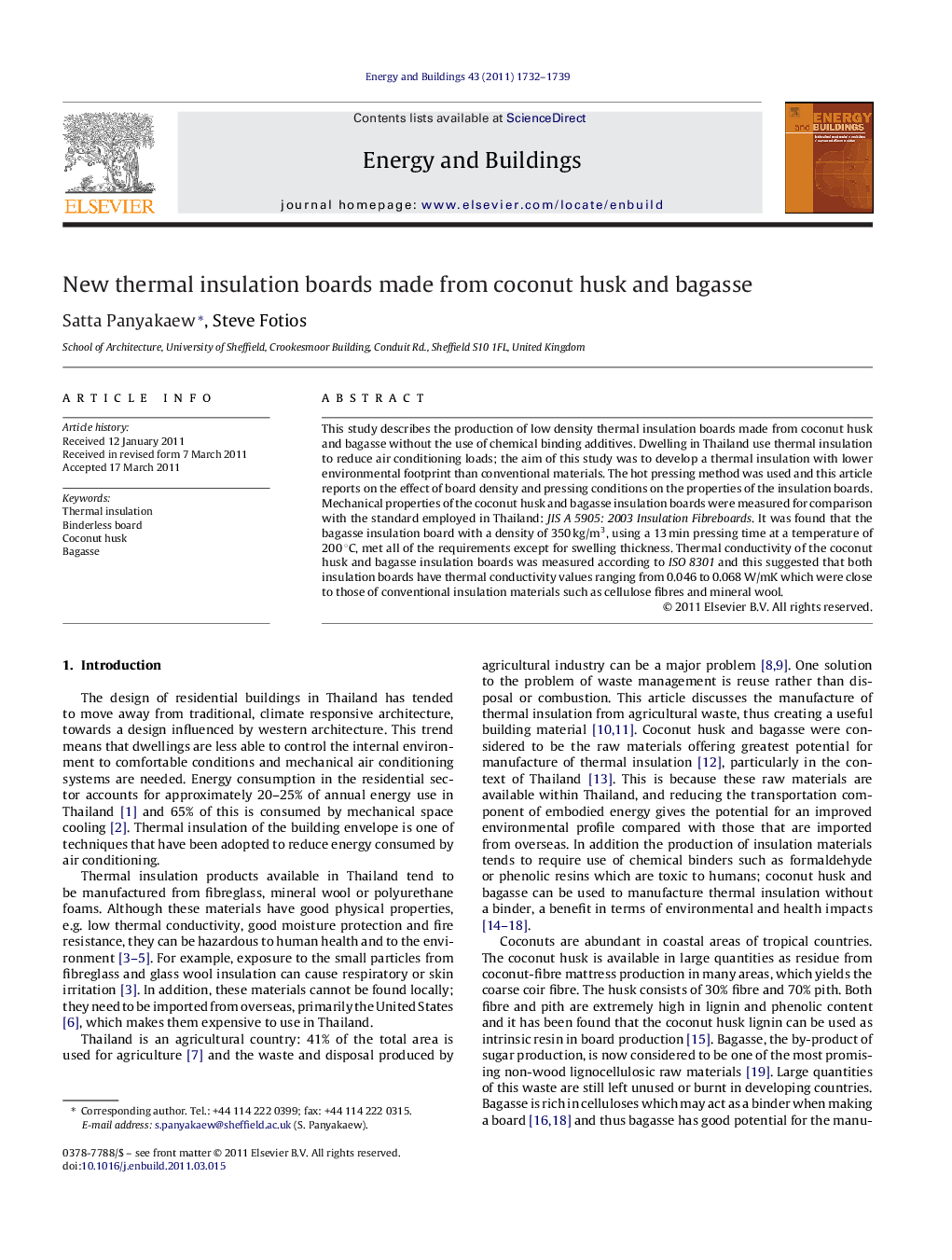| Article ID | Journal | Published Year | Pages | File Type |
|---|---|---|---|---|
| 264530 | Energy and Buildings | 2011 | 8 Pages |
This study describes the production of low density thermal insulation boards made from coconut husk and bagasse without the use of chemical binding additives. Dwelling in Thailand use thermal insulation to reduce air conditioning loads; the aim of this study was to develop a thermal insulation with lower environmental footprint than conventional materials. The hot pressing method was used and this article reports on the effect of board density and pressing conditions on the properties of the insulation boards. Mechanical properties of the coconut husk and bagasse insulation boards were measured for comparison with the standard employed in Thailand: JIS A 5905: 2003 Insulation Fibreboards. It was found that the bagasse insulation board with a density of 350 kg/m3, using a 13 min pressing time at a temperature of 200 °C, met all of the requirements except for swelling thickness. Thermal conductivity of the coconut husk and bagasse insulation boards was measured according to ISO 8301 and this suggested that both insulation boards have thermal conductivity values ranging from 0.046 to 0.068 W/mK which were close to those of conventional insulation materials such as cellulose fibres and mineral wool.
► We produced low density thermal insulation boards from coconut husk and bagasse without binders. ► Thermal conductivities of both thermal insulation boards are close to conventional insulations. ► We evaluate the effects of board density, pressing conditions on board physical properties. ► Board physical properties are improved with increasing density, pressing time and temperature. ► Physical properties of bagasse boards are superior to those of coconut husk boards.
